Alberta
Watch: Alberta surging toward 100 cases of COVID-19 and shuts down non-essential gatherings of over 50 people

From the Province of Alberta
Aggressive public health measures, including additional limits to mass gatherings, are being implemented provincewide to limit the spread of COVID-19 and protect Albertans.
Latest updates
- Government will declare a state of public health emergency.
- 23 additional cases of COVID-19 have been confirmed in Alberta, bringing the total number of cases in the province to 97. Cases have now been identified in all zones across the province.
- 70 cases in the Calgary zone
- 20 cases in the Edmonton zone
- three cases in the Central zone
- three cases in the South zone
- one case in the North zone
- Mass gatherings are now limited to no more than 50 attendees. This includes worship gatherings and family events such as weddings. Grocery stores, shopping centres, health-care facilities, airports, and other essential services are not included.
- To limit the amount of time Albertans are spending in large crowds and crowded spaces, all Albertans are prohibited from attending public recreational facilities and private entertainment facilities, including gyms, swimming pools, arenas, science centres, museums, art galleries, community centres, libraries, children’s play centres, casinos, racing entertainment centres, and bingo halls.
- Sit-down restaurants, cafés, coffee shops, food courts and other food-serving facilities, including those with a minors-allowed liquor license, are limited to 50 per cent capacity to a maximum of 50 people. Take-out, delivery or drive-through service is permitted.
- Licensed restaurants and bars can now sell liquor without selling food as part of their take-out – with the exception of drive-thru windows – and delivery services to help keep businesses open, staff employed and additional options for Albertans who are self-isolating.
- Changes to the Employment Standards Code have been made to provide job protection for Albertans.
- Albertans are prohibited from attending buffet-style restaurants. At this time, not-for-profit community kitchens, soup kitchens and religious kitchens are exempt, but sanitization practices are expected to be in place and support will be in place for this practice.
- Food services in work camps are also exempt, but in addition to appropriate sanitization practices, arrangements should be made to provide for workers if they are self-isolated.
- $60 million is being provided to help social services organizations respond to critical front-line services.
- Until further notice, all Albertans are restricted from attending bars and nightclubs, where minors are prohibited by law.
- Ski hills across the province are strongly encouraged to close by the end of day March 17, to prevent the spread of COVID-19.
- Effective March 18, all passenger ropeways, like gondolas and chairlifts, will be closed until further notice under the Safety Codes Act.
- All provincial historic sites and the Provincial Archives will be closing March 17. Information regarding facility bookings and passes will be available on the facilities’ websites.
- Upcoming expiry dates for Alberta drivers’ licences, vehicle registrations, other permits and certificates are being extended until May 15.
- Effective immediately, the Seniors Information Office, located on Jasper Avenue in Edmonton, will be closed to protect the health of clients and staff. Seniors in need of information on seniors financial assistance programs should contact Alberta Supports at 1-877-644-9992.
- Alberta Court of Appeal is limiting attendance to necessary parties. Matters continue either electronically or with social distancing directives in effect.
- In-person post-secondary classes remain cancelled as institutions move to alternate delivery formats. Campuses remain open.
Access to justice services
The Office of the Public Guardian and Trustee will be suspending in-person visits with clients or service providers.
Alternative arrangements will include phone, email, Skype, texting and videoconferencing. Contact information can be found at https://www.alberta.ca/contact-office-public-guardian-trustee.aspx.
Traffic Courts: www.albertacourts.ca/pc/resources/announcements//traffic-court-pandemic-scheduling-updated
Alberta Court of Appeal: https://albertacourts.ca/ca/publications/announcements/notice—covid-19
Job-protected leave
Full and part-time employees can access 14 days of job-protected leave for the purpose of self-isolation related to COVID-19, retroactive to March 5.
The leave does not apply to self-employed individuals or contractors.
The requirement to have worked for an employer for 90 days to access COVID-19 specific leave is no longer required.
Employees self-isolating due to COVID-19 do not require a medical note to access leave.
Indigenous community response
First Nations are encouraged to develop community response plans with Indigenous Services Canada and their Directors of Emergency Management and First Nations Field Officer. Indigenous Services Canada can be reached at [email protected].
Metis Settlements are encouraged to develop response plans with their Directors of Emergency Management and Field Officer.
Social services organizations
Funding support is being provided through Family and Community Support Services for adult homeless shelters, women’s emergency shelters and civil society organizations to help keep front-line critical services operating and provide support for vulnerable populations.
Information for travellers
Travel outside the country is strongly discouraged. Given the rapid global spread of the virus, it is no longer possible to assess health risks for the duration of the trip.
Any traveller returning from outside of the country should self-isolate for 14 days, even if they are feeling well, and monitor for symptoms.
Any traveller who has returned before March 12 should closely monitor themselves for symptoms. If they experience symptoms, they should self-isolate immediately and call Health Link 811 for follow-up assessment and testing.
The Alberta government is working with Travel Alberta on a strategy to inform Canadians returning from travel outside the province about the need to self-isolate, and how to access medical care, if needed.
COVID-19-related information is now being provided for returning passengers at the international airports in both Edmonton and Calgary. This information has also been shared with the Fort McMurray International Airport and several airlines.
Quick facts
- The most important measures that Albertans can take to prevent respiratory illnesses, including COVID-19, is to practise good hygiene.
- This includes cleaning your hands regularly for at least 20 seconds, avoiding touching your face, coughing or sneezing into your elbow or sleeve, disposing of tissues appropriately, and staying home and away from others if you are sick.
- Anyone who has health concerns or is experiencing symptoms of COVID-19 should complete an online COVID-19 self-assessment.
- For recommendations on protecting yourself and your community, visit alberta.ca/COVID19.
Alberta
Game changer: Trans Mountain pipeline expansion complete and starting to flow Canada’s oil to the world

Workers complete the “golden weld” of the Trans Mountain pipeline expansion on April 11, 2024 in the Fraser Valley between Hope and Chilliwack, B.C. The project saw mechanical completion on April 30, 2024. Photo courtesy Trans Mountain Corporation
From the Canadian Energy Centre
By Will Gibson
‘We’re going to be moving into a market where buyers are going to be competing to buy Canadian oil’
It is a game changer for Canada that will have ripple effects around the world.
The Trans Mountain pipeline expansion is now complete. And for the first time, global customers can access large volumes of Canadian oil, with the benefits flowing to Canada’s economy and Indigenous communities.
“We’re going to be moving into a market where buyers are going to be competing to buy Canadian oil,” BMO Capital Markets director Randy Ollenberger said recently, adding this is expected to result in a better price for Canadian oil relative to other global benchmarks.
The long-awaited expansion nearly triples capacity on the Trans Mountain system from Edmonton to the West Coast to approximately 890,000 barrels per day. Customers for the first shipments include refiners in China, California and India, according to media reports.
Shippers include all six members of the Pathways Alliance, a group of companies representing 95 per cent of oil sands production that together plan to reduce emissions from operations by 22 megatonnes by 2030 on the way to net zero by 2050.
The first tanker shipment from Trans Mountain’s expanded Westridge Marine Terminal is expected later in May.
 Photo courtesy Trans Mountain Corporation
Photo courtesy Trans Mountain Corporation
The new capacity on the Trans Mountain system comes as demand for Canadian oil from markets outside the United States is on the rise.
According to the Canada Energy Regulator, exports to destinations beyond the U.S. have averaged a record 267,000 barrels per day so far this year, up from about 130,000 barrels per day in 2020 and 33,000 barrels per day in 2017.
“Oil demand globally continues to go up,” said Phil Skolnick, New York-based oil market analyst with Eight Capital.
“Both India and China are looking to add millions of barrels a day of refining capacity through 2030.”
In India, refining demand will increase mainly for so-called medium and heavy oil like what is produced in Canada, he said.
“That’s where TMX is the opportunity for Canada, because that’s the route to get to India.”
Led by India and China, oil demand in the Asia-Pacific region is projected to increase from 36 million barrels per day in 2022 to 52 million barrels per day in 2050, according to the U.S. Energy Information Administration.
More oil coming from Canada will shake up markets for similar world oil streams including from Russia, Ecuador, and Iraq, according to analysts with Rystad Energy and Argus Media.
Expanded exports are expected to improve pricing for Canadian heavy oil, which “have been depressed for many years” in part due to pipeline shortages, according to TD Economics.
 Photo courtesy Trans Mountain Corporation
Photo courtesy Trans Mountain Corporation
In recent years, the price for oil benchmark Western Canadian Select (WCS) has hovered between $18-$20 lower than West Texas Intermediate (WTI) “to reflect these hurdles,” analyst Marc Ercolao wrote in March.
“That spread should narrow as a result of the Trans Mountain completion,” he wrote.
“Looking forward, WCS prices could conservatively close the spread by $3–4/barrel later this year, which will incentivize production and support industry profitability.”
Canada’s Parliamentary Budget Office has said that an increase of US$5 per barrel for Canadian heavy oil would add $6 billion to Canada’s economy over the course of one year.
The Trans Mountain Expansion will leave a lasting economic legacy, according to an impact assessment conducted by Ernst & Young in March 2023.
In addition to $4.9 billion in contracts with Indigenous businesses during construction, the project leaves behind more than $650 million in benefit agreements and $1.2 billion in skills training with Indigenous communities.
Ernst & Young found that between 2024 and 2043, the expanded Trans Mountain system will pay $3.7 billion in wages, generate $9.2 billion in GDP, and pay $2.8 billion in government taxes.
Alberta
Alberta government should eliminate corporate welfare to generate benefits for Albertans
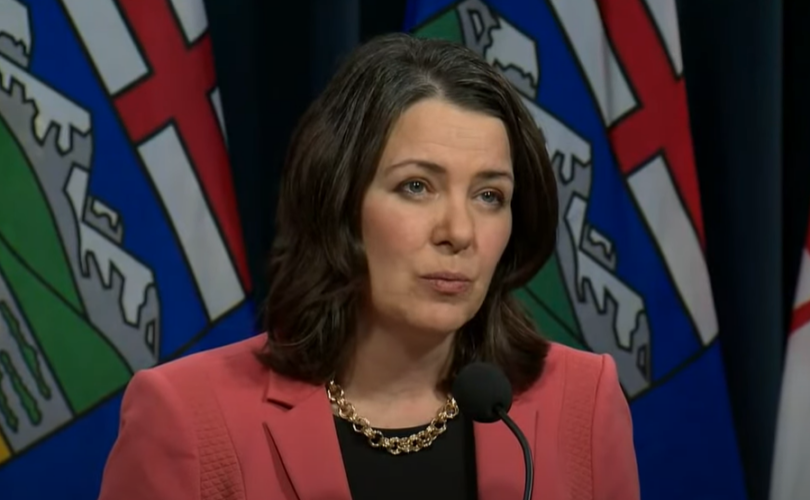
From the Fraser Institute
By Spencer Gudewill and Tegan Hill
Last November, Premier Danielle Smith announced that her government will give up to $1.8 billion in subsidies to Dow Chemicals, which plans to expand a petrochemical project northeast of Edmonton. In other words, $1.8 billion in corporate welfare.
And this is just one example of corporate welfare paid for by Albertans.
According to a recent study published by the Fraser Institute, from 2007 to 2021, the latest year of available data, the Alberta government spent $31.0 billion (inflation-adjusted) on subsidies (a.k.a. corporate welfare) to select firms and businesses, purportedly to help Albertans. And this number excludes other forms of government handouts such as loan guarantees, direct investment and regulatory or tax privileges for particular firms and industries. So the total cost of corporate welfare in Alberta is likely much higher.
Why should Albertans care?
First off, there’s little evidence that corporate welfare generates widespread economic growth or jobs. In fact, evidence suggests the contrary—that subsidies result in a net loss to the economy by shifting resources to less productive sectors or locations (what economists call the “substitution effect”) and/or by keeping businesses alive that are otherwise economically unviable (i.e. “zombie companies”). This misallocation of resources leads to a less efficient, less productive and less prosperous Alberta.
And there are other costs to corporate welfare.
For example, between 2007 and 2019 (the latest year of pre-COVID data), every year on average the Alberta government spent 35 cents (out of every dollar of business income tax revenue it collected) on corporate welfare. Given that workers bear the burden of more than half of any business income tax indirectly through lower wages, if the government reduced business income taxes rather than spend money on corporate welfare, workers could benefit.
Moreover, Premier Smith failed in last month’s provincial budget to provide promised personal income tax relief and create a lower tax bracket for incomes below $60,000 to provide $760 in annual savings for Albertans (on average). But in 2019, after adjusting for inflation, the Alberta government spent $2.4 billion on corporate welfare—equivalent to $1,034 per tax filer. Clearly, instead of subsidizing select businesses, the Smith government could have kept its promise to lower personal income taxes.
Finally, there’s the Heritage Fund, which the Alberta government created almost 50 years ago to save a share of the province’s resource wealth for the future.
In her 2024 budget, Premier Smith earmarked $2.0 billion for the Heritage Fund this fiscal year—almost the exact amount spent on corporate welfare each year (on average) between 2007 and 2019. Put another way, the Alberta government could save twice as much in the Heritage Fund in 2024/25 if it ended corporate welfare, which would help Premier Smith keep her promise to build up the Heritage Fund to between $250 billion and $400 billion by 2050.
By eliminating corporate welfare, the Smith government can create fiscal room to reduce personal and business income taxes, or save more in the Heritage Fund. Any of these options will benefit Albertans far more than wasteful billion-dollar subsidies to favoured firms.
Authors:
-
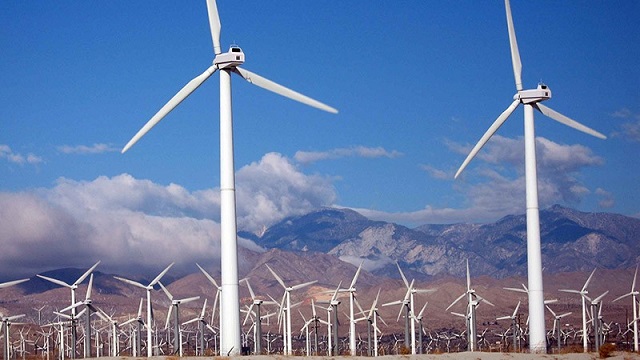
 Economy2 days ago
Economy2 days ago‘Gambling With The Grid’: New Data Highlights Achilles’ Heel Of One Of Biden’s Favorite Green Power Sources
-
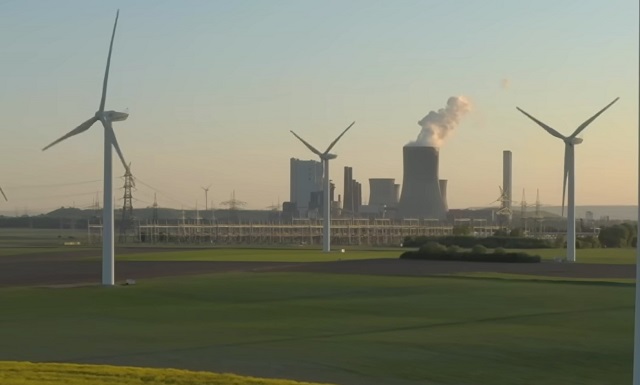
 Energy2 days ago
Energy2 days agoMarket Realities Are Throwing Wrench In Biden’s Green Energy Dreams
-
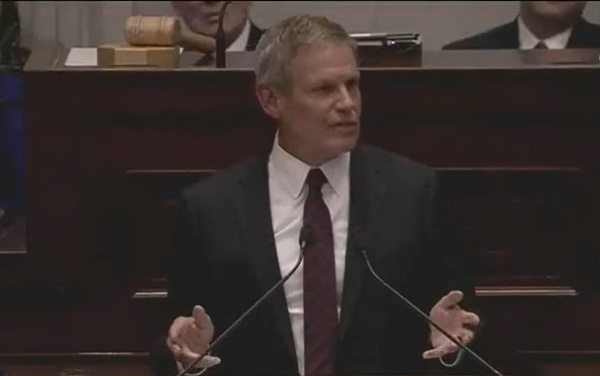
 ESG2 days ago
ESG2 days agoTennessee Taking Lead In Protecting Civil Rights And Free Enterprise—And Stopping Political Debanking
-
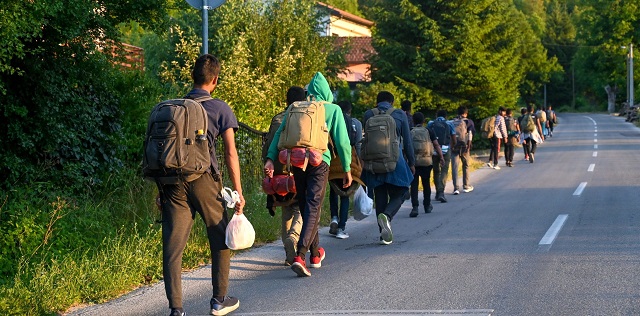
 illegal immigration2 days ago
illegal immigration2 days agoBiden’s DOJ Threatens To Sue Another State For Enforcing Immigration Law
-

 Brownstone Institute20 hours ago
Brownstone Institute20 hours agoBook Burning Goes Digital
-

 conflict1 day ago
conflict1 day agoOver 200 Days Into War, Family Of American Hostage in Gaza Strives For Deal To Bring Son Home
-

 Brownstone Institute9 hours ago
Brownstone Institute9 hours agoThe Predictable Wastes of Covid Relief
-
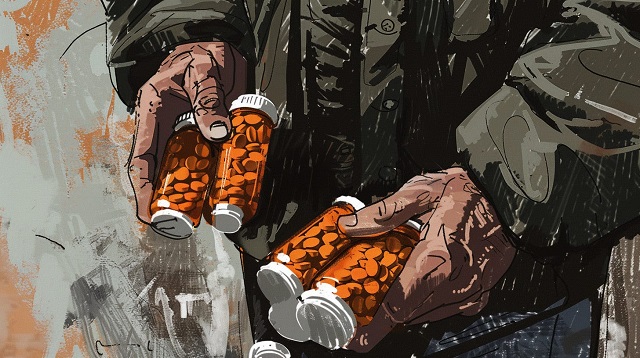
 Addictions27 mins ago
Addictions27 mins agoCanada’s ‘safer supply’ patients are receiving staggering amounts of narcotics







